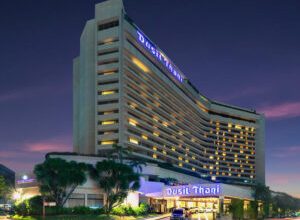My Baguio retreat

I am writing this article in my room at Chalet Baguio while enjoying the cool weather, the scent of pine trees, and the beautiful mountain view. This morning, I took a short cab ride to the revitalized Baguio Botanical Garden for my daily 30-minute morning walk. Tomorrow morning, I will go for a walk at Burnham Park or Camp John Hay, have breakfast at a nearby café, and start reading Raymond Chandler’s The Long Goodbye.
Ordinarily, I would not be able to take a vacation towards the end of the school trimester, during which time the academic and administrative workload is reaching its peak. Over the past few days, I took care of the final set of interviews of applicants to our DBA Program, handled various inquiries about our MBA Program, sat on a doctoral dissertation panel, attended a budget proposal meeting to defend several items we need for our new EMBA Program, and checked some of the final papers of my graduate students. On top of these, I have been working on several manuscripts that my doctoral mentees and I intend to submit to academic journals for publication. In other words, I had been doing work off-campus, five hours away from Manila.
I am fortunate because MBA and DBA classes at De La Salle University (DLSU) are predominantly online, which means that I do not have to be physically present on class days. And because we are operating under a hybrid work ar-rangement, we have a lot of flexibility in terms of whether to do our work at home, in school, or wherever we choose as long as we have a strong internet connection. This does not mean that I am working less. In fact, I had spent more hours on work-related stuff in the past few weeks and had not been able to allocate enough time to learning the Korean language, reading fiction, and upgrading my guitar-playing skills.
What inspired me to write this article is the dissertation of one of my doctoral mentees, Jessica Jaye Ranieses, who earned her doctorate last year. In her dissertation, entitled “Navigating the Work-Nonwork Interface: A Critical Realist Case Study on Female Employee Wellbeing,” she talked about the blurring of boundaries between work and non-work domains in the post-pandemic era.
In particular, Ranieses called for a broader understanding of the dynamics emerging from the interconnection and gendered nature of work and non-work responsibilities. Early research was conducted on the premise that the work and family domains have clear boundaries, and that simultaneous demands from these domains could lead to conflict and stress, especially among women professionals. However, our understanding of the interplay between work and non-work domains has since expanded to include potential complementarities between the two domains. For example, emotional support from the family, especially the spouse, allows women professionals to deal with work-related demands more effectively. Thus, the benefits in one domain can positively influence the other.
One of Ranieses’ findings is that workplace flexibility emerged as a crucial mechanism for ensuring well-being, especially if it is supported by a culture of trust and respect. Flexible work arrangements allow individuals to balance work demands and non-work demands, thus reducing stress and enhancing job satisfaction. One of Ranieses’ respondents, “Jennifer,” highlighted how the flexibility provided by her company encouraged loyalty and deterred misuse: “It’s the care for the people, the flexibility [that I appreciate]. I don’t think I’d find another company as flexible. But because I care for the company, I don’t abuse it. Flexibility is the number one factor why I stay.”
In her dissertation, Ranieses came up with the Multidimensional Work-Non-Work Well-Being Model, which extended the classical Job Demands-Resources Model. In this model, she identified six primary mechanisms that influence the in-terplay of entities and structures in both the work and non-work domains, namely: (a) workplace dynamics; (b) workplace flexibility; (c) role complexity; (d) family dynamics; (e) spiritual faith; and (f) individual reflexivity. All of these play a role in shaping well-being outcomes.
I’d like to end this article by highlighting individual reflexivity, which Ranieses defined as the internal dialogue through which individuals interpret and act upon their circumstances. This mechanism allows individuals to appraise and manage demands and resources, and to align their life plans with their actions. In my case, going to Baguio for a “work retreat” is my way of decompressing. Somehow, the pleasant weather and the tranquil atmosphere allow me to release stress, to re-flect upon what truly matters, and to enjoy life’s simple pleasures while I fulfill my professional responsibilities remotely.?
Raymund B. Habaradas is a full professor and the Graduate Program coordinator of the Department of Management and Organization at the Ramon V. del Rosario College of Business of De La Salle University.




